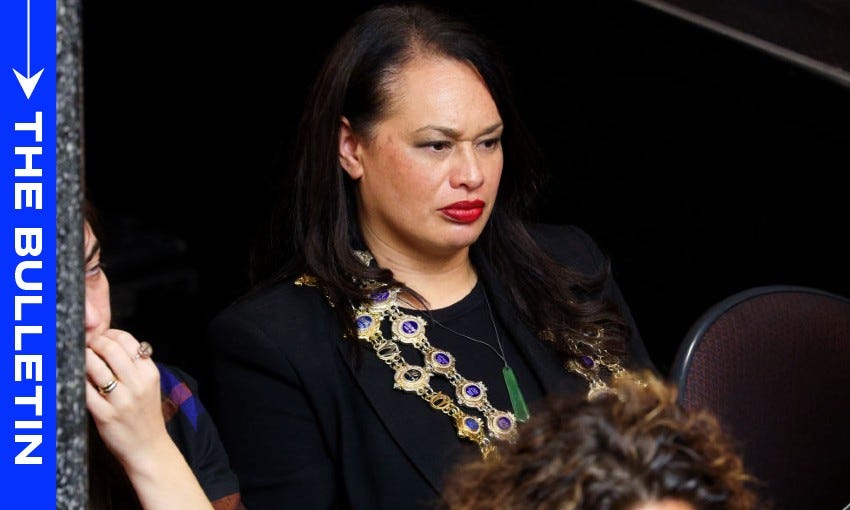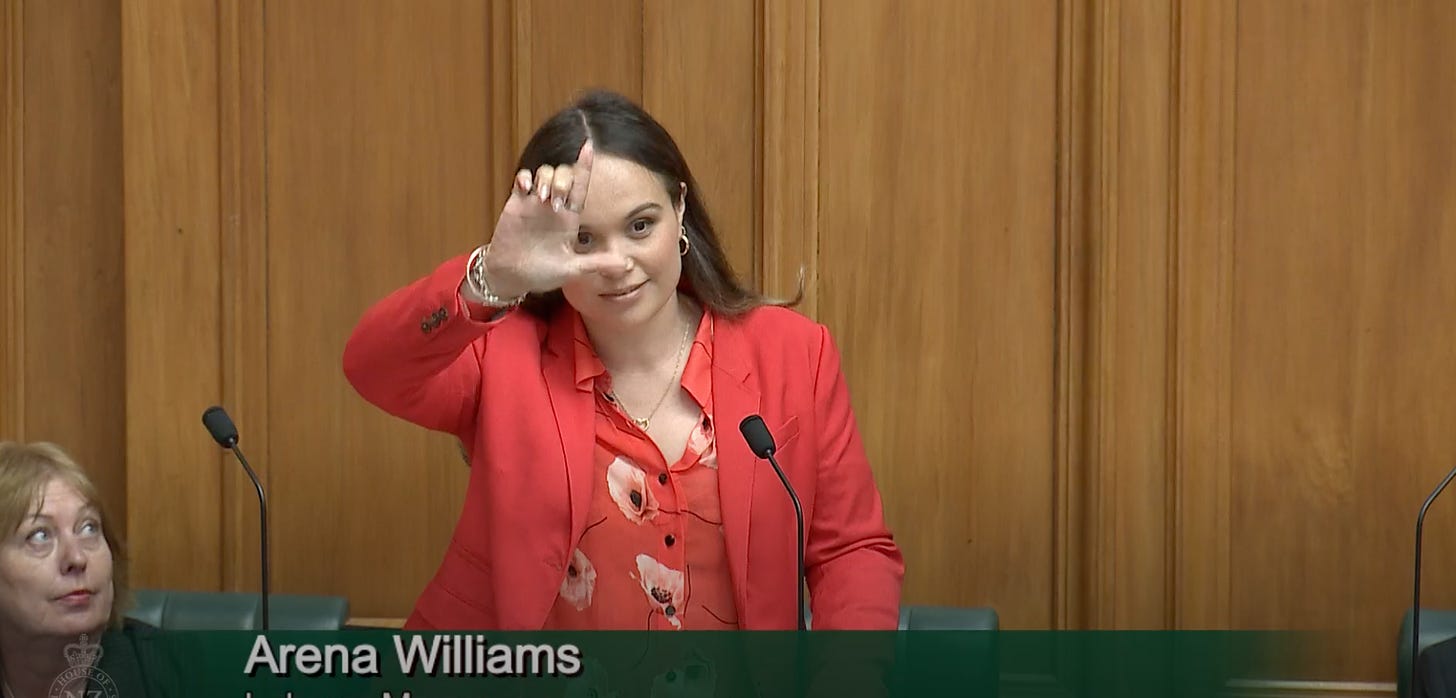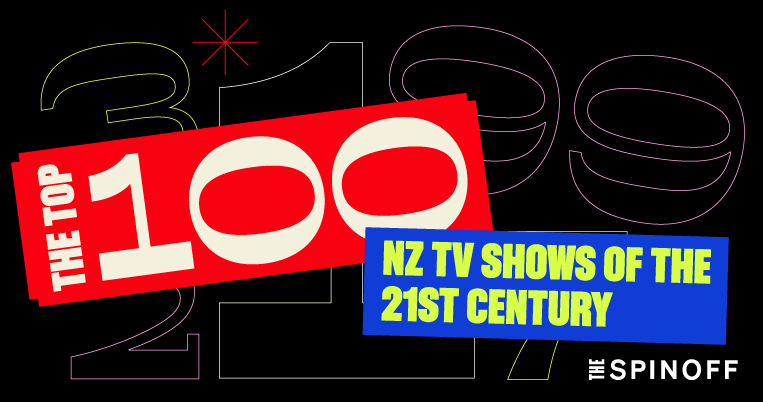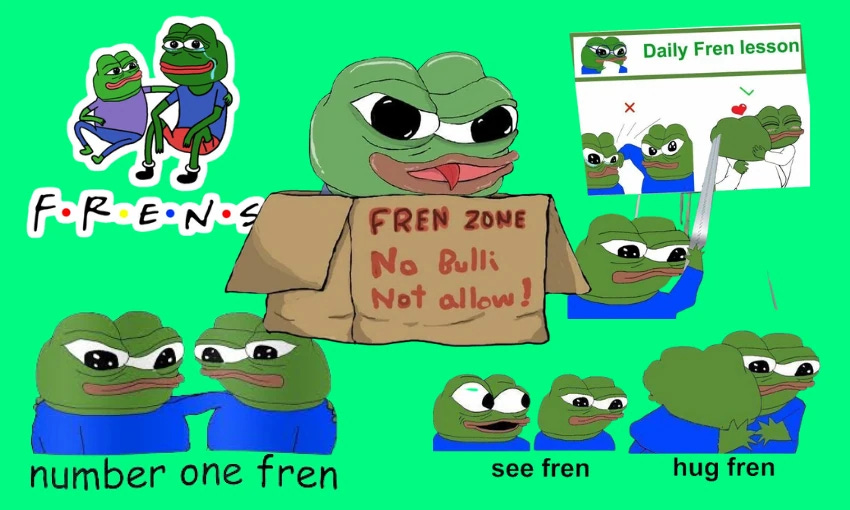Wellington mayor 'not fighting' decision to bring in an observer
Tory Whanau says she wasn't overly surprised the government followed through with its threat to intervene at Wellington City Council.
Mōrena, and welcome to The Bulletin for Wednesday, October 23.
In today’s edition: New $3 per head school lunches unveiled, Goldsmith shoulder taps another controversial board appointment, and the toughening of the “too soft” three strikes bill, explained. But first: It took less than a week for the government to step in at Wellington Council. Is it just the beginning?
Capital punishment
Little over a week after the threats first started, during an otherwise pretty standard interview with finance minister Nicola Willis on Newstalk ZB, the government has confirmed it will indeed appoint a Crown observer to Wellington Council. As reported by Stuff, local government minister Simeon Brown said yesterday that he was concerned about the ability of Wellington City Council to amend its long-term plan, something that will be required as a result of a failed vote to sell off the council’s stake in Wellington Airport. “Following advice from officials I have identified there is a significant problem at Wellington City Council that warrants the government appointing a Crown observer,” Brown said.
If you missed the backstory as it was developing, we talked about it last Wednesday. While the council has been in the government’s firing line for some time – from largely exaggerated suggestions it was spending large on “white elephant” projects instead of focusing on critical infrastructure, through to the hyperbole over the impact of cycle ways on the city – it was the airport vote that broke the camel’s back. All eyes now turn to how the council will respond, and whether other local councils could face similar wrath.
‘We need assistance’
Wellington mayor Tory Whanau, reported The Post’s Thomas Manch, has responded politely to the government’s announcement and said she and the council will work “constructively” with whoever is appointed as observer. “I wasn’t overly surprised at the decision to bring in an observer, based on sentiments expressed,” she told media. “And I wasn’t fighting this decision.”
The mayor’s lack of surprise that intervention has been ordered likely points to that ongoing narrative or “vibe”. Stuff’s Glenn McConnell noted that Wellington Council could be a victim of “political proximity” given it is close to parliament, reporters and “draped in politics”. Last weekend’s edition of Mediawatch on RNZ argued compellingly that the media had ramped up the urgency around government action at the council (indeed, the headline used for last week’s Bulletin featured in Colin Peacock’s report). While the predicted outcome has ultimately eventuated, Peacock’s report accurately noted that focus on Wellington – and Whanau – has been severe for much of this council’s tenure.
Where Whanau did push back, however, was around the broader narrative of dysfunction at the council, particularly around funding for water infrastructure. "We need assistance, not punching down,” said Whanau. As Interest’s Dan Brunskill pointed out, there remains some confusion as to what the Crown observer will suggest when it comes to the need to pay for these types of projects, with Simeon Brown appearing to say that the city should take on more debt to fund water service upgrades as opposed to relying on rate revenue.
Opening the flood gates?
Labour’s Chris Hipkins, reported RNZ’s Giles Dexter, expressed concern that if this was the government’s threshold for stepping in, “you won't find many councils left that don't end up with some kind of intervention”. Victoria University’s Dean Knight had similar thoughts, arguing Simeon Brown had engineered “an apparent significant problem” at the council.
Those words could ring true for the Otago Regional Council that has this week had the government block its vote on implementing tougher environmental rules, reported Newsroom Pro’s Fox Meyer (paywalled). The government yesterday passed an amendment preventing any councils from enacting new freshwater plans until a new National Policy Statement can be developed, which Labour’s Rachel Brooking described as a “specific attack on the Otago Regional Council”. Prior to the decision, as the Otago Daily Times reported, councillor Alexa Forbes said the intervention would make a "nonsense" of any idea that the council had local decision-making independence.
Earlier in the week, a paywalled report from the Times included comment from Labour Taieri MP Ingrid Leary, who described the government as riding “roughshod over process and rules”, including at the Wellington council. “It strikes me there could be an agenda to create a perception of chaos at the Otago Regional Council by some members to try to prompt government intervention,” Leary said.
Meanwhile, down the road…
It wasn’t just Wellington Council in the firing line yesterday: two members of parliament also made headlines for their roles in separate stories. Former Green MP turned independent Darleen Tana was formally ousted from parliament, telling 1News’ Maiki Sherman in an exclusive interview that it was something of a relief to finally learn her fate. Tana maintains she had no part in the allegations of migrant exploitation levelled at her husband’s business and told Sherman that’s part of the reason she fought to stay an MP. "Show me the evidence where I have done something wrong,” she said.
Meanwhile, the issue of National MP Andrew Bayly still isn’t going away. The embattled minister fronted to reporters at parliament where he once again reiterated his apology and said that while the “general tenor” of the complaint against him was accurate, he did not recall swearing. Bayly was forced to relive it all again inside parliament’s debating chamber during an uncomfortable exchange with Labour’s Arena Williams, which is how we ended up with this image.
Join our community of supporters
"I like that it feels like chipping in for a good cause, rather than paying for a subscription." – Kimberley, Spinoff member.
Whether you read, listen to or watch our mahi, you can support us to do more by donating today or signing up to become a member. Already a member? Ka nui te mihi, your support means the world to us.
‘So good, really good’: New $3 per head school lunches unveiled
Associate education minister David Seymour has unveiled details of his revamped and slimmed down school lunch programme. As 1News reported, Seymour said every student receiving a school lunch today will continue to do so from the start of next year – but the meals will cost a mere $3 each. Under the current scheme launched by the Labour government, lunches cost just shy of $9 per student.
"The programme will deliver nutritious hot and cold meals, such as butter chicken curry, chicken katsu, lasagne, chicken pasta salad and wraps,” said Seymour. "All students in year 0 to 8 will receive the same sized meals (240 grams) and older students will receive larger lunches (at least 300g) — which will include additional items such as fruit, yoghurt or muesli bars." Seymour said the new programme would save the government $130m a year.
If you’re wondering what the food is like, you’re in luck. The Spinoff’s Joel MacManus was at the launch event yesterday where he had a chance to sample the menu alongside Seymour (who was apparently “moaning in delight” at every mouthful). MacManus described a “forgettable but fine” butter chicken, “a creamy and coconutty” chickpea curry and a “warm and hearty” Tex Mex beef and beans meal.
But was any of it “woke”? You’ll have to consult our definitive list from earlier in the year.
Top 100 : An Emmy-winning lockdown experiment and Wellington’s answer to Magic Mike
We’re still counting down the best 100 New Zealand TV shows of the 21st century, and our second instalment covers off those ranked in the 80-61 spots. It includes one show that reviewer Daniel Taipua said “dragged NZ adult drama into the millennium”. What is it? Click through to find out.
Join us on The Spinoff every day at 9am to discover the latest ranking (today will see the 60-41 spots released) and see where your favourite lands. We also have an interactive feature that allows you to check off the shows you’ve seen and make a watchlist out of those you haven’t (there are a lot of shows I have never set eyes on, and some I haven’t even heard of).
And if you haven’t already, subscribe to Rec Room now to get the rankings delivered directly to you as soon as they're live each day.
Is there room for conservatives in culture?
An interesting piece of analysis from The Spinoff’s Duncan Greive looking at the latest board appointment made by the government, and how it could point to an interesting trend. On Friday, Philip Crump was announced as one of two new appointees to the board of NZ On Air. Crump, explains Greive, was formerly known on the internet by his pseudonym Thomas Cranmer and gained a large following for writing about “hot button topics” like the Three Waters co-governance provisions or the Posie Parker tour.
His pieces interrogated topics which were suddenly hard to discuss in many broad media outlets, while also being still of huge interest to many right-leaning New Zealanders. The views were not always predictable, but tended to focus on areas in which he viewed New Zealand’s news media having failed in some way.
Greive exclusively reports that Crump was shoulder tapped for the role with NZ On Air and did not seek the appointment. It follows revelations by The Spinoff’s Madeleine Chapman last week that incoming race relations commissioner Melissa Derby and chief human rights commissioner Stephen Rainbow were each appointed without the endorsement of bipartisan appointment committees. That process was overseen by Goldsmith, who is also in charge of filling places on NZ On Air’s board.
Watch: Home Education – The Fairul Izad family
Episode three of Home Education introduces Irma, who left her career as a chartered accountant to home educate her two sons. When her eldest son was attending school, his love for ballet became an open secret. But now, “you don't have to hide,” says Irma, who feels her children's formative years are too precious to miss. Irma now fields questions like “does space have a bottom?” following Montessori and Unschooling education principles.
Made with the support of NZ On Air.
Click and Collect
The government has confirmed the details of the official apology to be given to survivors of abuse in state care.
The toughening of the “too soft” three strikes bill, explained.
A call for iwi to break free from Crown financial institutions and create a separate economy.
Where is still affordable for first home buyers with less than a 20% deposit?
Madeleine Holden argues that 'millennial snot' will not give way to a new age of sincerity and clarity. Lyric Waiwiri-Smith has a guide to banter for Andrew Bayly and anyone else who needs it. For The Cost of Being, a beneficiary who wishes she could afford red meat discusses her costs.
That’s it for today, thanks for reading. See you back here tomorrow morning.
Want to get in touch? Join the conversation in the Substack comments section below or via email at thebulletin@thespinoff.co.nz if you have any feedback on today’s top stories (or anything else in the news).
If you liked what you read today, share The Bulletin with friends, family and colleagues.


















Wasn't one plank of National's election platform a focus on putting decision-making back in the hands of local councils etc? Given Luxon's often-cited support for localism, this government seems intent on achieving the opposite. Maybe what he *really* means is decision-making by local wealthy people and/or local large businesses?
Perhaps the biggest problem with Tory Whanau is her previous association with the Green Party.